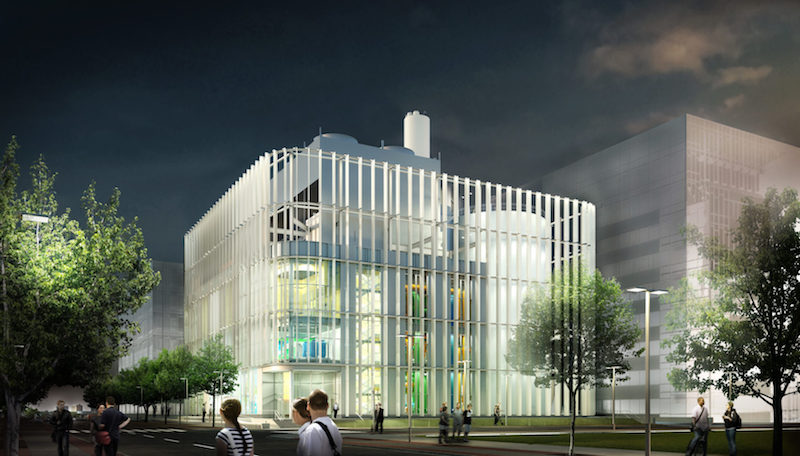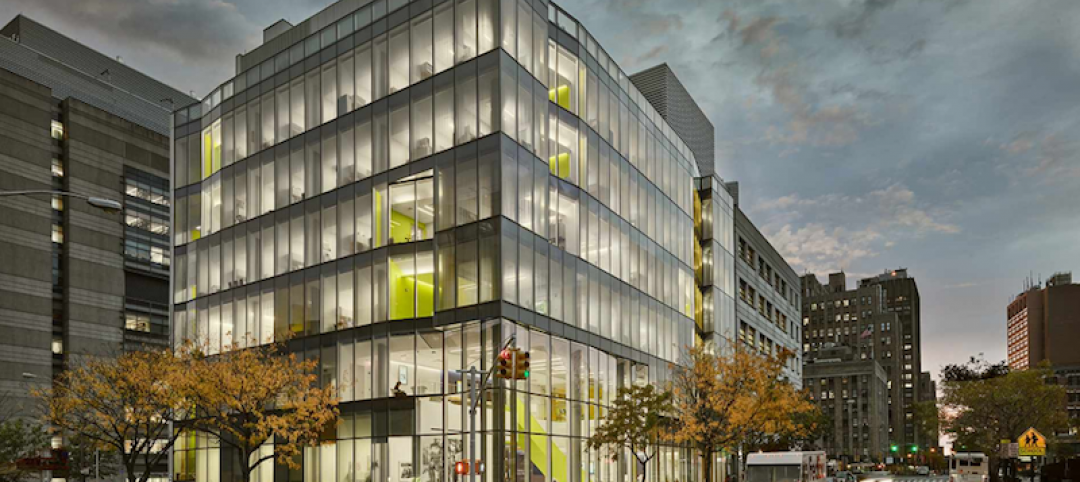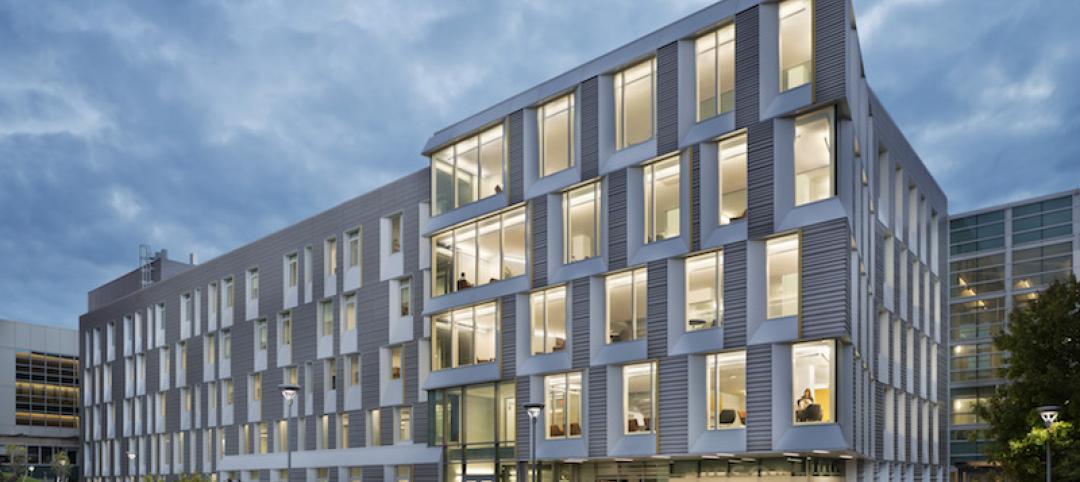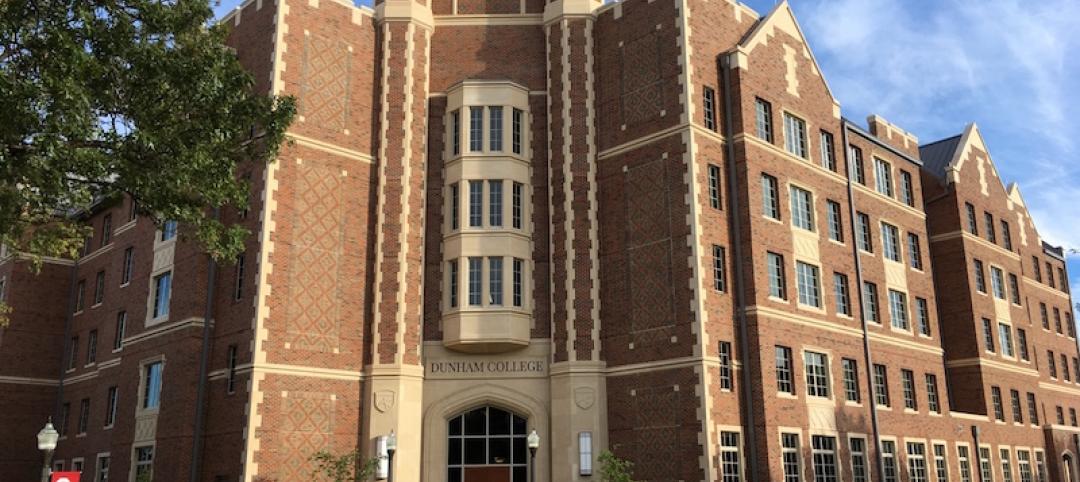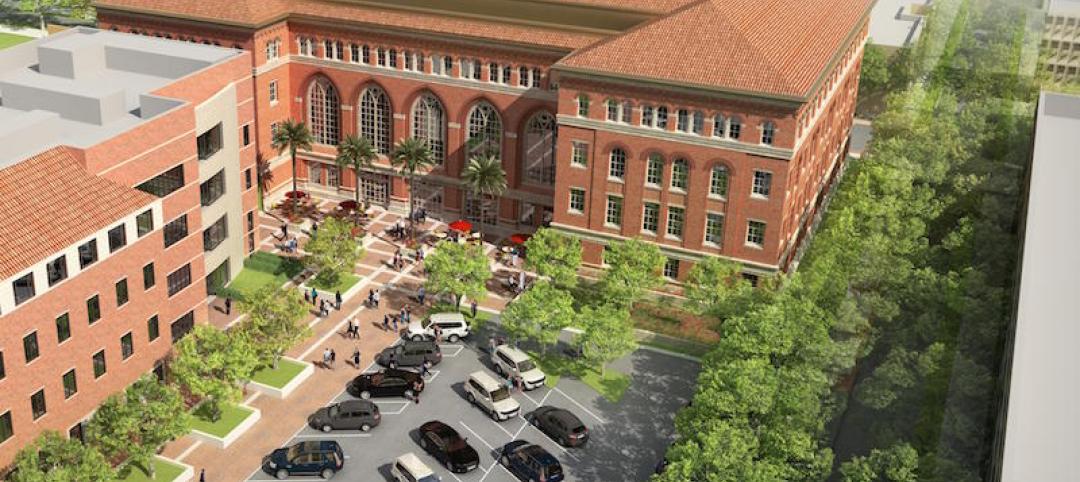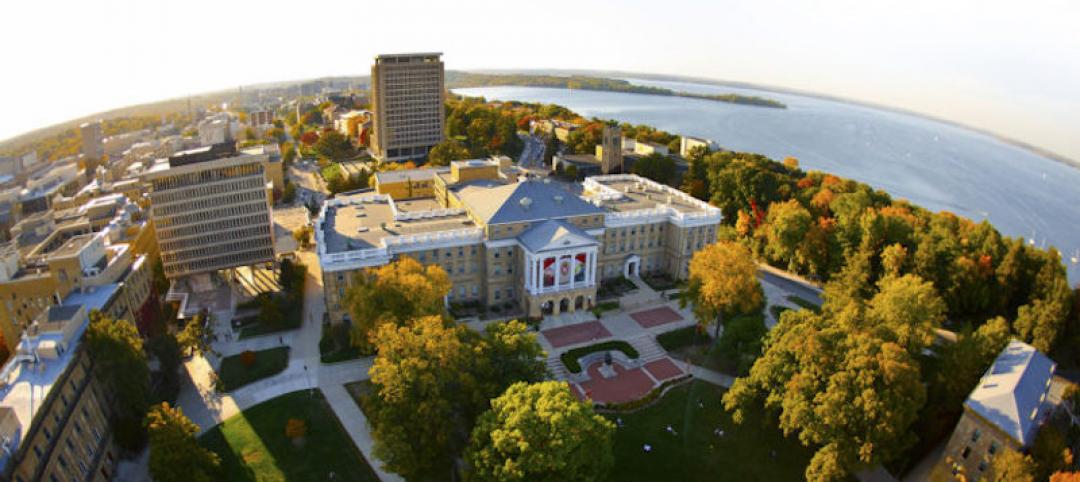The 58,000-sf Harvard University Allston Campus District Energy Facility (DEF) will provide electricity, hot water, and chilled water to the Allston campus. The building represents a new infrastructure typology dubbed the cogeneration plant.
Designed by Leers Weinzapfel Associates, the DEF uses a compact cubic form with rounded corners that allows for maximum flexibility of future development and is a visible demonstration of cost-effective sustainability in building. The facility is wrapped in metal fins that form a screen around it, with “petal-like” elements set at varying degrees of openness to reveal or conceal the various equipment areas within.
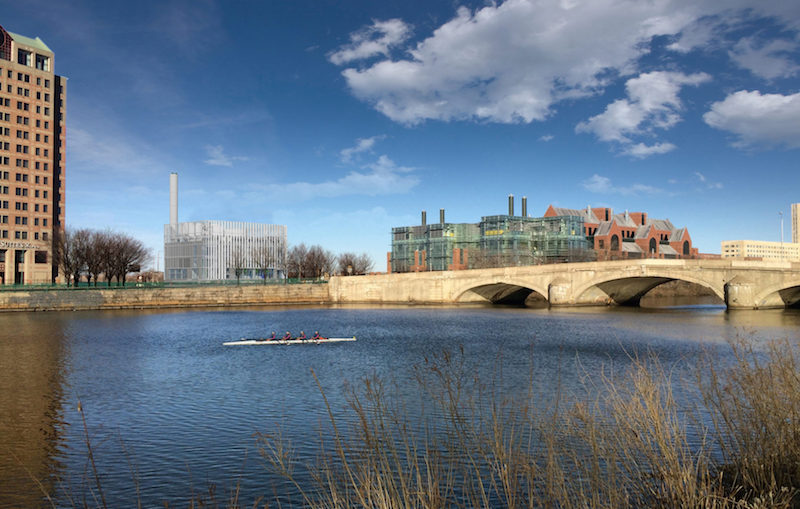 Rendering courtesy of Leers Weinzapfel Associates.
Rendering courtesy of Leers Weinzapfel Associates.
The fins are most open at the building’s corner entry and round the thermal energy storage tank. They are most closed on the service sides. The fins are raised above the ground on the public face of the building to reveal the main equipment hall to passersby.
The DEF’s transparent interior allows it to be used as a teaching tool for the university’s new science and engineering campus. People can observe the cogeneration plant’s complicated system of chillers, boilers, piping, pumps and flues, and electrical tools.
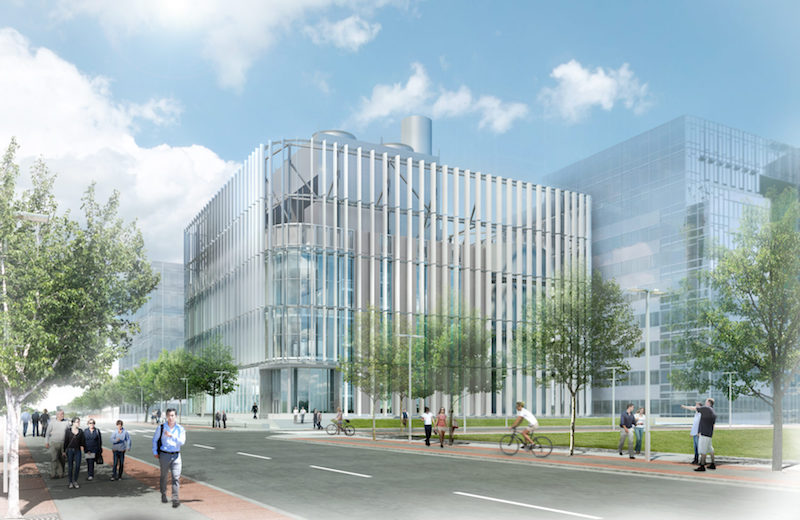 Rendering courtesy of Leers Weinzapfel Associates.
Rendering courtesy of Leers Weinzapfel Associates.
RMF Engineering designed the DEF’s equipment systems, which are efficient, resilient, and adaptable to the campus’s future needs. A chilled water reserve tank provides thermal energy to support efficient equipment use and equipment elevated above flood levels supports resiliency for continuous independent operation of the facility, even in the event of electrical grid failure.
The project is slated for completion in 2019.
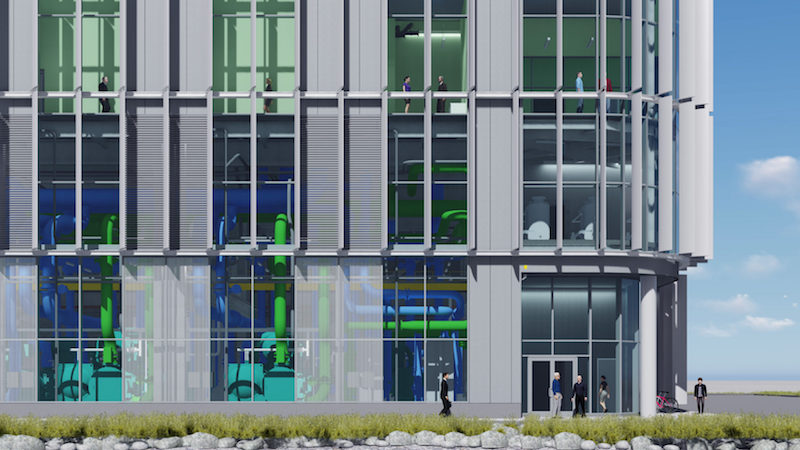 Rendering courtesy of Leers Weinzapfel Associates.
Rendering courtesy of Leers Weinzapfel Associates.
Related Stories
University Buildings | Nov 28, 2017
FXFOWLE and CO Architects collaborate on Columbia University School of Nursing building
The building has a ‘collaboration ribbon’ that runs throughout the building.
Sports and Recreational Facilities | Nov 27, 2017
The University of Memphis unveils the new home of the men’s basketball program
The Laurie-Walton Family Basketball Center will provide a strong commitment to donor and VIP cultivation.
Adaptive Reuse | Nov 10, 2017
Austin’s first indoor shopping mall becomes Austin Community College’s new digital media center
Renovation of the defunct mall represents Phase 2 of ACC’s $100 million adaptive reuse project.
University Buildings | Nov 6, 2017
A reconstructed building sets the standard for future rehabs at Cornell
Early AE collaboration played a major role in moving this project forward efficiently.
University Buildings | Oct 13, 2017
The University of Oklahoma receives its first residential colleges
The residential communities were designed by KWK Architects and combine living and learning amenities.
University Buildings | Oct 12, 2017
USC to debut new bioscience center next month
The building is designed to maximize recruitment and interaction of scientists and researchers.
University Buildings | Oct 12, 2017
The Center for Wounded Veterans is a first for a university campus
The Chez Family Foundation Center for Wounded Veterans in Higher Education is the first building of its kind on a U.S. college campus.
University Buildings | Oct 10, 2017
A 1920s cheese factory is now a university science building
Almost 15,000 sf of space was added to the original, four-story building.
Sustainability | Oct 9, 2017
New Arizona State University building will reach triple net-zero performance
The science and research complex will include an atrium biome filled with plants and water.
Higher Education | Sep 18, 2017
Campus landscape planning of the future: A University of Wisconsin-Madison case study
Recognizing that the future health of the campus and lake are interdependent, this innovative approach will achieve significant improvements in stormwater management and water quality within the university’s restored, more connected network of historic and culturally rich landscapes.


